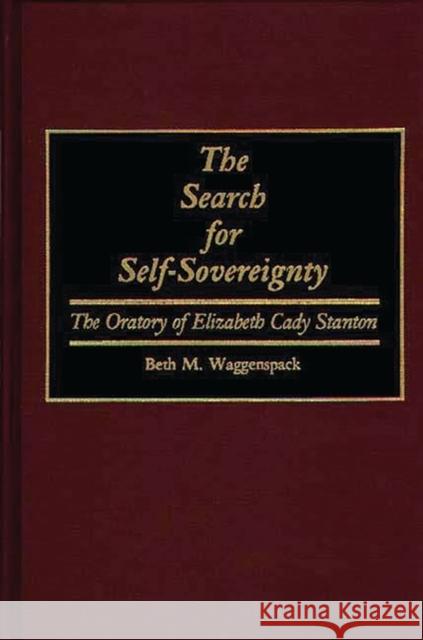The Search for Self-Sovereignty: The Oratory of Elizabeth Cady Stanton » książka
The Search for Self-Sovereignty: The Oratory of Elizabeth Cady Stanton
ISBN-13: 9780313259784 / Angielski / Twarda / 1989 / 216 str.
Elizabeth Cady Stanton was one of the founding philosophers of America's women's rights movement. The first woman's rights convention in the United States was held in Seneca Falls, New York, in 1848; there she helped write and present the Declaration of Sentiments, a "woman's bill of rights" which articulated the inferior and unjust position of women in law, church, and society and called for redress. From this grew the organized demands by women in the United States for the ballot and other social change. In this fourth volume in Greenwood's series of book-length studies of great American orators, Waggenspack focuses on the rhetoric of an outstanding orator who has been hailed as one of the earliest and most outspoken advocates of women's rights issues. This needed addition to the history and criticism of American public address is based on Waggenspack's original research of the Elizabeth Cady Stanton papers and will facilitate not only the study of feminist rhetoric but will also meet the needs of those wishing to evaluate the effects of American public address and the impact of an advocate or speech upon history. Part One, using a case study format, presents critical analyses of the orator and her speeches with the focus on rhetorical considerations of speaker and speech, purpose and effect. Part Two contains seven definitive speech texts of the commanding oratory analyzed in Part One. Of special note is the inclusion of Cady Stanton's famous "The Solitude of Self," a speech appealing to the highest qualities and aspirations to people everywhere. A chronology details all of Cady Stanton's known addresses and the bibliography contains carefully annotated biographies on the orator aswell as a detailed list of the contents of the Elizabeth Cady Stanton Papers in the Library of Congress. The volume closes with notes and an index. This notable study will be a valuable research tool for students and scholars of rhetoric, public oratory, American history, and women's studies; it will also fascinate the general reader.











